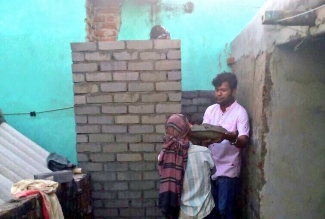
Giving a further fillip to India’s energy conservation efforts, Ministry of Power has launched the ECO Niwas Samhita 2018, an Energy Conservation Building Code for Residential Buildings (ECBC-R).The Code was launched on the occasion of National Energy Conservation Day 2018.
The implementation of this Code will give a fillip to energy efficiency in residential sector. It aims to benefit the occupants and the environment by promoting energy efficiency in design and construction of homes, apartments and townships. This Code has been prepared after extensive consultations with all stakeholders, consisting of architects & experts including building material suppliers and developers. The parameters listed in the Code have been developed based on large number of parameters using climate and energy related data. Initially, Part-I of the Code has been launched which prescribes minimum standards for building envelope designs with the purpose of designing energy efficient residential buildings. The Code is expected to assist large number of architects and builders who are involved in design and construction of new residential complexes in different parts of the country. Implementation of this Code will have potential for energy savings to the tune of 125 Billion Units of electricity per year by 2030, which is equivalent to about 100 million ton of Co2 emission.
ECBC for commercial buildings was already in place and revised and updated version of ECBC for commercial buildings was launched in June 2017. It is estimated that energy demand in the building sector will rise from around 350 billion units in 2018 to approximately 1000 billion units by year 2030.
While launching this ECBC-R, Minister of State (IC) for Power and New &Renewable Energy R.K.Singh stated that building sector will have highest growth in energy demand in coming 10-15 years. Government is encouraging all building professionals including architects, builders to generate awareness towards energy conservation while constructing new residential homes.











